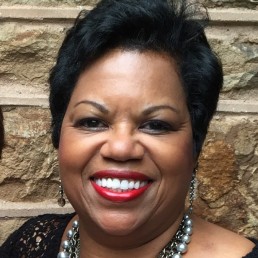TBC Advances Board Diversity Dialogue at Two Virtual Events
By: Trevon James
On Sept. 30, The Board Challenge participated in two critical national board diversity discussions.
First, Charlotte Laurent-Ottomane of Thirty Percent Coalition interviewed Les Brun, a prominent Black corporate director, and Guy Primus, The Board Challenge co-founder and CEO of Valence. The conversation covered misperceptions, challenges and common roadblocks that business leaders face when considering diversifying their boards. (The Coalition is a cross-sector business group advocating for board diversity in public and private companies).
That evening, Fishbowl hosted a lively discussion on the need for boards to recruit more women and other business leaders from ethnic and LGBTQ+ communities. Moderated by Primus, speakers included Shannon Gordon (CEO of theBoardlist) John Kuo (program lead for Ascend 10×25, an AAPI board diversity organization) and Fabrice Houdart (managing director at Out Leadership). Fishbowl is a fast-growing social network where professionals connect and get helpful advice from colleagues and coworkers.
Addressing the Tension
Although The Board Challenge has focused on adding more Black directors to corporate boards, we champion board diversity across the spectrum – and for good reason. According to the 2021 Missing Pieces Report of 5,880 corporate directors in the Fortune 500, 510 are Black (5.1%), 240 are Latinx (4.1%), 270 are Asain American/Pacific Islander (4.6%), and 4,853 are White (82.5%). The Russell 3000 currently has roughly 26,952 corporate directors, and just 5.4% of them are Black.
“Board diversity is not just about women, not just about black, brown, or LGBTQ,” Primus said. “Diversity of thought leads to a diversity of possibility.” Still, a PwC survey of 900 board directors found that 24% of directors don’t believe racial diversity has an impact on diversity of thought within boardrooms. This lack of understanding prompted speakers from both events to recommend that boards rethink their recruiting strategy by moving beyond white male CEOs and their professional network.
But this will take some time, according to the Heidrick and Struggles 2021 Board Monitor report:
Board diversity has a long way to go because the reality is that 50% of new board members are former CEOs, along with 21% being current or former CFOs in 2019. If people of color aren’t reaching the CEO or CFO level, how can they join boards?
Fortunately, new regulations and state legislation continues to underscore board diversity as a business imperative. Legislators in California and 11 other states including Maryland, Illinois, and New York, have passed or are debating rules that support board diversity. On Aug. 6, the SEC approved Nasdaq’s new rules aimed at advancing diversity on corporate boards and wider transparency around board composition. And as Primus is quick to point out: “Lack of board diversity is not a pipeline problem. It’s a perception challenge.”
However, despite the mandates, there is tension in the idea of mandating diversity initiatives, according to Kuo: “[Right now] it’s a check the box thing. We need to get to a point where boards actually want to embrace some diversity – and understand that diversity and the different points of view and cultural experiences that are brought by diverse members to the board table, bring value not only to the board, but to the company.”
For companies to go beyond tokenism and box checking, corporate leaders must believe that diversity improves corporate performance. Research shows that board strategists believe a homogenous board can be detrimental to companies looking to grow and expand. Bloomberg Law notes that “companies with a market capitalization of more than $10 billion and with women on their boards outperform comparable businesses with all-male boards by 26% worldwide over a period of six years.”
“[Recognizing] that data supports that outcomes are better with a more diverse board – and starting that at the top with public company boards and driving that down through private company boards more broadly – is really how we will begin to solve that problem going forward,” Brun said.
Navigating Power Effectively
Still, the overwhelming empirical evidence, legislation and regulation may not necessarily smooth the road ahead for board diversity advocates like Houdart. “Power never really concedes power without a demand,” he said.
Gordon and theBoardlist are hopeful that advocating for diversity can build awareness around this dilemma and sway reluctant leaders to rethink their objections.
“[Allyship] is about figuring out how to give power away and create opportunities for others,” Gordon said. “That is actually what extends your power in ways that you cannot do simply as an individual.”
What Recruiters are Looking for in Board Prospects
By Sheryl Hilliard Tucker
In September 2020, The Board Challenge launched a national movement with a clear and compelling mission: Improve the representation of Black directors in the boardrooms of U.S. public and private companies.
More than 75 companies, business leaders and organizations have signed on to make board diversity a business imperative in corporate America. To date, 18 Black directors have been elected to the boards of companies that took The Board Challenge pledge.
On August 6, 2021, the SEC strengthened our movement by approving Nasdaq’s proposed requirement that companies listed on its exchange disclose their board diversity metrics. Equally as important, the rise of board diversity mandates in California, Washington and Illinois are encouraging other states to take legislative action.
Beyond an increased focus on diversifying corporate boards is a renewed effort to improve the quality of board candidates. In fact, Harvard Business Review reported that the bar for “board readiness” has never been higher. “Directors are scrutinized for their ability to understand more complex businesses, demonstrate technical know-how, deliver effective governance, and generate sustainable long-term performance.”
So what’s the best way for Black business leaders to present their true value proposition to board recruiters? Recruitment experts may differ on the specifics, but Nicole Kyner, head of search at The Board Challenge co-founder theBoardlist, a firm that connects exceptional diverse candidates with global board opportunities, summed it up well in an interview with CoveyClub:
Boards are looking for people who can solve the problems their companies are currently facing … Most corporate boards are looking for people with operating experience who have built programs and projects, and know how to lead. However, once you’re on a board, your role isn’t to build and to lead but instead to advise the CEO without telling him or her what to do. “It can be a difficult transition.”
That is why more board recruiters are encouraging director candidates to think differently about how they showcase themselves and their careers when seeking board seats. Recruiters are also encouraging board candidates to keep in mind the type of board they would like to join. Unlike larger company boards, portfolio companies of private equity and venture capital firms may seek board candidates who wish to take on more direct managerial responsibilities.
Regardless, to get the right perception across, board consultant Mark A. Pfister explains that candidates need to “show independent thinking and thought autonomy outside of hierarchical structures”—and “think [strategically] above and beyond tactical.”
Phister recommends candidates present their value proposition by focusing on three main areas: expertise, experience and credentials. Here is a quick summary of Pfister’s advice:
- Candidates should frame their expertise and knowledge areas in ways that will resonate with recruiters looking to fill specific board seats. Also, knowing which board committees they can best support will help recruiters understand a candidate’s value to the board.
- Prospects must do their homework and be able to discuss challenges the board is addressing.
- Experienced directors should clarify their board and board committee experience with succinct examples of successes.
- Recruiters may ask qualified board candidates without board experience to discuss other types of board interactions, such as preparing board reports or making presentations to boards.
- Recruiters want to understand how candidates’ successful projects and programs supported their company’s strategic plan – and how they ensured alignment through proper governance.
- Prospective board directors can enhance their candidacy with board preparation courses offered at a local university or through the National Association of Corporate Directors. Schools such as Santa Clara University offer Black Corporate Board Readiness Programs, and professional associations like the Executive Leadership Council provide these services to their members.
Board recruiters are paying more attention to candidates’ emotional intelligence skills. Pfister and other board experts emphasize that boards need leaders with demonstrated experience building exceptional work teams, enhancing corporate culture and leveraging diversity to grow successful organizations.
If you want more information about positioning yourself for a corporate board or finding great board-ready Black candidates, please contact The Board Challenge at join@theboardchallenge.org.
HeartFlow Joins The Board Challenge as Newest Pledge Partner
theBoardlist and Valence will support HeartFlow’s search for a Black director
NEW YORK, August 23, 2021 — The Board Challenge, a movement to increase the number of Black directors on U.S corporate boards, announced today that HeartFlow has signed on as a Pledge Partner, committing to add a Black director to its board within the next 12 months. HeartFlow, the leader in precision heart care, provides non-invasive, personalized cardiac tests and associated software suite solutions to address heart disease, the leading cause of death in the world.
HeartFlow will leverage resources from The Board Challenge including Valence and theBoardlist to identify top candidates for the open board seat.
“I am delighted to welcome HeartFlow to The Board Challenge,” said Sheryl Hilliard Tucker, executive director of The Board Challenge. “We are always looking for new companies willing to step up and take tangible action to diversify their boards, and make a difference in the overall makeup of U.S. boardrooms.”
HeartFlow joins a roster of Pledge Partner companies committed to diversifying their boards, including Quickbase, Accolade and PagerDuty. To date, 15 of the initiative’s Pledge Partners have elected a total of 17 new Black directors. The Board Challenge has 75+ Partners and Supporters in total working across industries to make board diversity a business imperative.
“We believe HeartFlow’s non-invasive, artificial intelligence-enabled solution can transform and democratize cardiovascular care by providing physicians with the information they need to make precise diagnoses and optimize treatment for their patients,” said John H. Stevens, MD, President, CEO and Co-Founder, HeartFlow. “We look forward to working with The Board Challenge to identify a Black director who can help us accomplish our mission of making HeartFlow accessible to more patients and providers.”
The Board Challenge invites all public and private U.S. companies to join the movement. Companies without a Black director can take the pledge and leverage our resources and network to assist in their search, while companies that have at least one Black director can sign on as Charter Partners and connect other organizations to The Board Challenge.
For more information and to take the pledge or express your support, reach out to join@theboardchallenge.org.
About HeartFlow
HeartFlow is the leader in revolutionizing precision heart care, uniquely combining human ingenuity with advanced technology. HeartFlow’s non-invasive HeartFlow FFRCT Analysis leverages artificial intelligence to create a personalized three-dimensional model of the heart. By using this model, clinicians can better evaluate the impact a blockage has on blood flow and determine the best treatment for patients. HeartFlow’s technology is reflective of our Silicon Valley roots and incorporates over two decades of scientific evidence with the latest advances in artificial intelligence. For more information, visit www.heartflow.com.
About The Board Challenge
The Board Challenge is a movement to increase representation and accelerate progress for Black board directors at public and private U.S. companies. The initiative was founded in September 2020 by Brad Gerstner (CEO, Altimeter Capital), Sukhinder Singh Cassidy (Founder and Chair, theBoardlist) and Guy Primus (CEO, Valence Community). Companies that take the pledge commit to adding at least one Black director to their board within 12 months, and can leverage resources from theBoardlist and Valence to enhance the search process, including a free, custom slate of top candidates.
For media inquiries, contact:
The Board Challenge
media@theboardchallenge.org
HeartFlow
media@heartflow.com
Black Directors on Why Board Diversity in Tech is Critical
By Trevon James, Research Fellow, The Board Challenge
The Board Challenge recently hosted a Clubhouse chat with two tech boardroom insiders to share their perspective on the importance of diverse boards. Our last conversation aimed to dispel the pipeline myth around a lack of Black corporate board-ready talent.
For this installment of our fireside chats, Guy Primus, co-founder of The Board Challenge and CEO of Valence, hosted an insightful conversation with Merline Saintil, Corporate Director at Rocket Lab and Lightspeed,and Dr. Alec Gallimore, Corporate Director at PagerDuty and ANSYS, and the Robert J. Vlasic Dean of the University of Michigan College of Engineering.
Board Diversity in Tech by the Numbers
Despite numerous pledges to improve the representation for women and racial/ethnic minorities, the tech industry continues to lag behind on diversity metrics. This reality is also reflected in the boardroom of companies across the spectrum- from pre-IPO and venture-backed firms to large public companies.
According to the Spencer Stuart Board Index, 172 new directors were added to the top 200 U.S. tech company boards in 2020 for a total of 1,805 current board seats. Black professionals make up just 3% of the total, holding 55 seats. These numbers may not be encouraging, but the movement to turn the trend around shows promise.
Our two guest speakers, representing a growing cadre of exceptional Black tech board directors, shined a light on where tech boardrooms should be heading.
Change Agents for Innovation and Growth
Saintil and Gallimore hold a combined eight public and private board positions. Often tapped for her expertise in cybersecurity, Saintil sits on six corporate boards. The former tech executive’s extensive strategy and product development experience at such companies as Intel, Yahoo and Paypal fuels her high-demand status for director seats across industries.
Committed to expanding the numbers of Black corporate directors, Saintil co-founded Black Women on Boards and counsels faculty members at the Santa Clara University Black Corporate Directors Program.
Gallimore is the Robert J. Vlasic Dean of Engineering at the University of Michigan, one the nation’s top engineering colleges. In 2019, he was elected to the National Academy of Engineering, one of the highest professional distinctions for an engineer. Currently, Gallimore sits on two publicly traded boards. He is a rocket scientist who has also served on advisory boards for NASA and the Department of Defense, including the United States Air Force Scientific Advisory Board.
“Great board members can be game-changers for companies,” reports the global organizational firm Korn Ferry. “Organizations have found they need to recruit directors with a depth and breadth of technology knowledge, including digital, social media, e-commerce, technology infrastructure and cybersecurity. They’re reaching beyond CEOs and veteran board members and into C-suites to find directors with new knowledge, experience and viewpoints.”
For Saintil, it was her background in cybersecurity and insights for risk management; for Gallimore, it was his high-level security clearance and experience in the defense industry and at NASA.
Although Gallimore did not have tech industry experience before serving on corporate boards, he quickly assessed that “companies need directors who know where to skate and where the puck is headed from a technological perspective.”
Unfortunately, he explained, companies often “use the most convenient way of finding talent” and don’t expand their search wide enough. “For something as important as [board] talent, why not be as rigorous, as broad and as encompassing in our ability to bring in the most talented people possible? Tech boards as well as other industries must find talent that add unique thought processes to the room.”
Saintil said that approach sometimes requires acting like a diversity officer: “I can’t help but show up as who I am.” By “offering her rolodex” she recommends diverse candidates during otherwise narrow search processes.
Saintil, who attended the Stanford Directors’ College before her first board appointment, advised prospective board candidates to find their voice and be concise about what contribution they can make to a boardroom.
Gallimore agreed, encouraging prospective and current directors to “be an agent for the change you wish to see. We need you all to be daring, to be innovative and to be bold.”
Snagajob Joins The Board Challenge as a Pledge Partner
The company commits to add one Black director to its board within one year
NEW YORK, July 8, 2021 — The Board Challenge, a movement to accelerate representation for Black leaders on the boards of U.S. companies, announced today that Snagajob, the country’s largest and fastest-growing platform for hourly work, has signed on as a Pledge Partner. By joining The Board Challenge, Snagajob commits to adding a Black director to its board within the next 12 months.
Valence and theBoardlist, co-founders of The Board Challenge, will provide free slates of top director candidates tailored to Snagajob’s board search criteria to strengthen and expedite the company’s recruitment efforts.
“I am pleased to count Snagajob among our Pledge Partners and to collaborate to identify quality candidates for their open board seat,” said Sheryl Hilliard Tucker, executive director of The Board Challenge. “We are seeing real momentum in the push to diversify corporate boards. I continue to advocate for all companies to tap into the vast pipeline of qualified, board-ready Black talent.”
Snagajob joins companies including Zillow, Amperity, Accolade and Nextdoor as Pledge Partners. The Board Challenge has 75+ Partners and Supporters in total who are working across industries to make board diversity a business imperative.
“We know board diversity is a strategic advantage, and believe a variety of perspectives enhances board performance and company success,” Snagajob CEO Mathieu Stevenson said. “Snagajob is excited to partner with the Board Challenge to be part of the movement to increase Black director representation on our own board, while encouraging others to do the same. We hope more of our employees, customers and hourly workers can see themselves on a board one day, and this is an important step toward making that a reality.”
Both public and private U.S. companies are encouraged to take The Board Challenge pledge. Companies that already have at least one Black director are invited to join as Charter Partners and tap their networks to motivate other organizations to take action.
For more information and to take the pledge or express your support, reach out to join@theboardchallenge.org.
About Snagajob
Snagajob, the country’s largest marketplace for hourly jobs and shifts, connects more than 47 million hourly job seekers with employment opportunities at 470,000 employer locations in the US. Snagajob’s mission is to put people in the right-fit positions so they can maximize their potential and live more fulfilling lives. Through Snagajob, workers gain the flexibility of working when and where they choose while employers are assured every shift stays filled. For more information, visit www.snagajob.com or connect with us on LinkedIn, Instagram, Facebook and Twitter.
About The Board Challenge
The Board Challenge is a movement to increase representation and accelerate progress for Black board directors at public and private U.S. companies. The initiative was founded in September 2020 by Brad Gerstner (CEO, Altimeter Capital), Sukhinder Singh Cassidy (Founder and Chair, theBoardlist) and Guy Primus (CEO, Valence Community). Companies that take the pledge commit to adding at least one Black director to their board within 12 months, and can leverage resources from theBoardlist and Valence to enhance the search process, including a free, custom slate of top candidates.
For media inquiries, contact:
The Board Challenge
media@theboardchallenge.org
Snagajob
press@snagajob.com
The push for corporate board diversity is growing. How do Pacific NW tech companies stack up?
This special series focuses on important community issues, innovative solutions to societal challenges, and people and non-profit groups making an impact through technology.
Turbocharging the Movement to Diversify Corporate Boards: Dispelling the Pipeline Myth
By Trevon James, Research Fellow, The Board Challenge
The Board Challenge hosted a second fireside chat on Clubhouse, the invitation-only social networking platform. After addressing the real story behind the recruitment of Black corporate directors in our inaugural discussion, the speakers on June 9 explored what’s driving the movement to increase board diversity and challenged the myth that America lacks enough board-ready African Americans.
Guy Primus, co-founder of The Board Challenge and CEO of Valence, facilitated the conversation with Radina Russell, senior managing director at Teneo and Rhonda Mims, chief legal and external affairs officer at ICMA Retirement Corporation.
These three influential board diversity advocates are forging effective coalitions dedicated to making change and taking immediate action. Russell is a founding board member of the Board Diversity Action Alliance (BDAA) and helped build the Executive Leadership Council’s early efforts to increase board diversity. The ELC has been a primary source of new Black directors in private and public companies over the past several years.
Mims chairs the Thirty Percent Coalition, a forum of public and private companies, professional services firms, institutional investors, government officials and major advocacy groups working together to increase diversity in corporate boardrooms. She also serves on the board of Athena Alliance Inc., which focuses on preparing women for board positions.
Just days before the Clubhouse event, the Alliance for Board Diversity and Deloitte published the second Missing Pieces Report, which revealed that Black directors held 8.7% (510) Fortune 500 board seats in 2020, up from 8.6% (486) in 2018. Since July 2020, 32% of new board members appointed in the S&P 500 are Black. Also, the BoardProspects report issued in March 2021 revealed that 5.4% of the 27,000 total board members for Russell 3000 companies are Black.
While these developments are encouraging, the speakers agreed that we have a long way to go to reach parity on corporate boards.
Public pressure; impressive talent pipelines
What’s turbocharging the board diversity movement? For starters, there’s no shortage of Black boardroom talent.
Before delving in the Black talent pipeline myths, all three speakers underscored the importance of the Black Lives Matter social and racial justice movement along with the protests surrounding the murder of Geroge Floyd in 2020 as catalysts for the surge in appointments of Black directors across public and private companies.
Equally as important, new laws requiring public companies operating in states like California and Washington to diversify their boards are already showing results. According to CNBC, the California mandate has prompted more than a dozen companies to sign pledges and prioritize the appointments of minority board members. Plus, new proposed Nasdaq rules mandating board diversity of companies listed on the world’s largest electronic exchange are signaling to companies that change is on the horizon.
Although the transformation of a boardroom’s diversity should be organic, it needs a strong push at the outset, Russell explained. Investors, corporate governance agencies and the media are turning words into action by working together to build awareness and advocate for change. As a result, more corporations are feeling the pressure to deliver on the diversity pledges made at the height of last year’s unrest. One year later, tracking the progress on these promises in tech and other industries shows mixed results.
Mims acknowledged that although many leaders reject quotas and want to make sure people are qualified before they serve on a board, legislative mandates open doors for underrepresented candidates. She suggested that organic progress takes time, and these initiatives and mandates are helpful for the time being, largely in part because of the momentum they generate.
Russell believes board diversity initiatives must be strategic to be effective. Bringing on any diverse director is not enough. Companies must clearly identify what they are looking for in terms of roles to be filled and skill sets needed to meet their goals.
Still, despite the recent flurry of elections and appointments of experienced Black executives, entrepreneurs and investors to America’s largest companies and hottest tech firms, the pipeline myth surrounding the lack of board-ready Black talent prevails.
That’s why conversations like this fireside chat are so important, Mims said. Demystifying the corporate board recruitment process and clarifying credentials helps Black professionals understand what’s required to serve on a board.
The fact that more Black professionals – especially younger women and men with deep investment, consulting and tech backgrounds – are stepping up to express interest in board positions has helped build a diverse pipeline.
“We can’t be afraid to be vocal about our aspirations,” Primus said.
Black Directors Gained Ground in the Boardroom as Others Slipped
New Black directors were near triple the 2019 share, Heidrick & Struggles found
You say you want a more diverse board. Here's how to make it happen.
Research reveals four commonly cited obstacles and how to overcome them.
Nasdaq Proposed Rules Promote Board Diversity: What Businesses Need to Know
Nasdaq proposed new rules that would require listed companies to have minimum diverse representation on their boards of directors—or explain why they do not—and provide public disclosures about this to investors and others.







